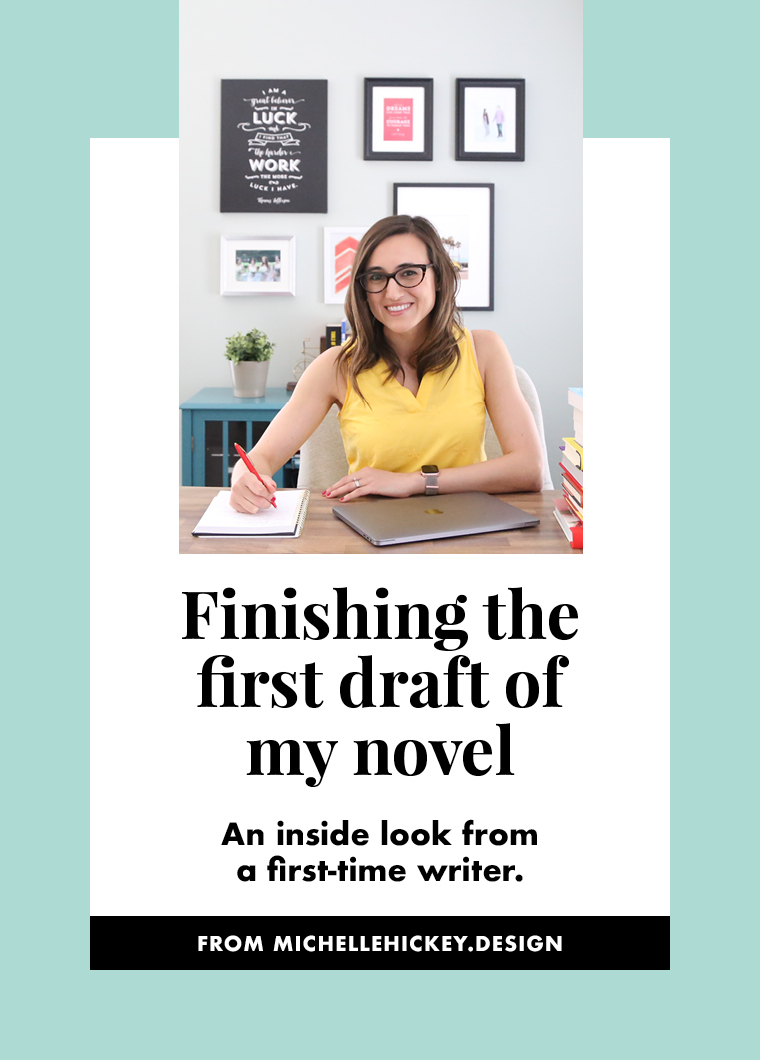After 125 consecutive days of writing, the first draft of my novel is complete! In this post, I share the next steps in my book-writing process.

What’s next?
Now that I’ve reached the end, it’s time to go back to the beginning. In the next phase, I’ll be reading and revising every chapter, one word at a time. It sounds tedious, but I love detail work, and I’m truly looking forward to it. With plotlines in place, I’ll be focusing on refining my characters’ stories to make them easier and more entertaining to read.
Here are the four areas that I’ll be tackling:
Fixing Inconsistencies
Something magical happens when you write characters. I spent months mapping out storylines and wasted a lot of time trying to make them perfect. Once I got behind the keyboard, the characters took off in directions I hadn’t considered.
In the beginning, I fought it, like a Type A person who gets upset when their carefully laid plans get disrupted. But by the time I reached the halfway point in the story, I gave in, and the words began to flow more easily. This means that a lot of the first half of this book needs to be rewritten so that the beginnings match up with the endings.
For example, since my story takes place in 2001-2002, I had it in my head that one of my characters should be in New York City on 9/11. Wouldn’t that be dramatic? My original storyline was that she’d spend the rest of the book trying to overcome PTSD (something I know nothing about).
I have chapters and chapters written where she’s sad and traumatized. It’s all very depressing but mostly because the writing is just terrible. I was trying to pigeonhole the character into a plot that she didn’t want to be a part of. The backdrop of 9/11 remained, but I allowed her story to go in a different direction, and it is far better than my original idea.
It has been a humbling experience to accept that a fictional character knows better than I do.
Finalizing Names
When I first began the writing process, I thought that choosing character names would be so much fun, like picking a baby name. And at first, it was! I don’t have kids so I got to utilize a lot of my favorite names by assigning them to characters.
Then it became tedious.
I’m very conscious of the role that names can play in the reader’s experience. Have you ever read a book where you spent half of it trying to figure out if the character was a girl or a guy? Or mixed up two people whose names were too similar? How about the names that are so overly unique that you spend the entire story annoyed at them because you can’t figure out how it’s pronounced?
I don’t want my readers to experience any of those frustrations. But that has required a lot of careful consideration.
In the same way that I threw my plot lines out the window, I stopped worrying about getting the names just right in the first draft. In addition to naming characters, some locations need names. It was slowing me down. So I left a lot of holes. My story is currently peppered with TK’s (editorial speak for “to come”) that I’ll be working to fill in during this next go around.
Refining dialogue
In its current state, my book is very dialogue-heavy. I think that the character exchanges are the most entertaining part of my story, but it needs tweaking. I want my characters to sound natural and real in their delivery, but there’s a balance that I haven’t quite hit.
In editing our podcast, I’ve become hyperaware of speech patterns, which has made me realize that we speak very differently than we write. Even well-spoken people are not completely fluid in their delivery. Books, tv shows, and movies tend to make their dialogue sharp and refined, which makes for a more entertaining experience, but in doing so, we sacrifice relatability. The human factor gets lost.
Maybe I’m chasing a white rabbit, but I want for my dialogue to sound both sharp and natural. We’ll see what happens.
Cutting words
The final word count for the first draft came in at 138, 308. For context, it’s a little bit longer than Twilight (118, 975 words) but not as long as Harry Potter and the Deathly Hallows (198, 227 words).
You don’t get extra credit for extra words. Superfluous words can detract from the story and the reader’s experience. These wise words from my college graphic design professor still ring in my ears: “your portfolio is only as strong as your weakest piece.”
Every word is getting scrutinized. Every sentence will be questioned. It’ll be interesting to see where the word count nets out after the second draft.
I’m humbled by the outpouring of support I’ve received through the first part of this project. If you are one of those people, thank you. Your encouragement is fueling this story and will be better because of it.







Wow! I can’t believe all the words you have written in this first draft! A-maz-ing. Also, I love that you trusted your instincts and your characters’ instincts when your fingers hit the keyboard and that you were willing to abandon initial outlines for the sake of the story. Brava! I know how hard the editing and refining process can be…but I’m so proud of you for taking this on and can’t wait to read this book one day and also read the book you write about writing this book…because I’m already vying for that one, too!
Thank you for using your gift of speaking and writing encouragement to bless me throughout this process. It means more than you know!